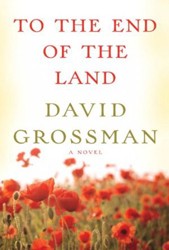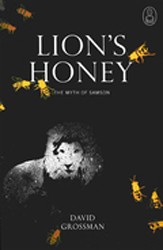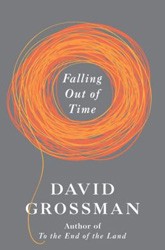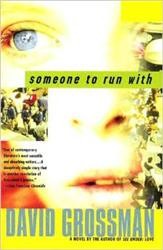In recent years, acclaimed novelist David Grossman’s capacity for surprising readers’ expectations has come to seem limitless. Not long after his incandescent To the End of the Land, an epic family story many consider Israel’s definitive antiwar novel, Grossman addressed his own grief in the wake of his 20-year-old son Uri’s death in the Second Lebanon War in Falling Out of Time. Though both novels address death and the catastrophe of personal loss, stylistically they have little else in common. Whereas To the End of the Land is in most respects a “traditional” novel, set firmly in Israel’s historical turmoil and natural landscape, Falling Out of Time altogether eludes genre classification. A tapestry of poetry, drama, and prose, its setting is a strangely timeless landscape filled with wandering characters struggling to cope with the unbearable loss of their children. In his latest book, A Horse Walks Into A Bar, Grossman once again addresses the intersections of grief, society, and the individual, this time in a thoroughly sly, roundabout way, ingeniously setting the narrative in a comedian’s single disastrous nightclub appearance, a performance that begins on a raucous note of hilarity before veering off into wildly unexpected terrain.
The novel’s chief protagonists are the fictional comic Dov Greenstein and a reluctant member of his audience, District Court Justice Avishai Lazar. The two have not seen each other since boyhood, and Dov’s standup comedy show provides the unlikely occasion for their fraught reunion. Over the course of an increasingly tense evening, Grossman gazes over the shoulders of the comedy club’s audience to observe these two characters struggle to resurrect memories of their earlier bond buried beneath the detritus of the long eventful decades. Just who are they to one another?
After opening with a (thoroughly Israeli) routine of macho, ribald banter, Dov’s sudden refusal to deliver more humor gradually alienates his restive audience. Soon, the comic seems altogether at war with his old fans, alternatively teasing, insulting, and cajoling them throughout a bewildering performance that ultimately turns self-destructive — or redemptive, depending on the way one looks at it — evincing the genius of Dov’s artistic control and its wrenching loss. Meanwhile, Avishai’s childhood memories of Dov’s mistreatment at the hands of childhood bullies provide jarring interludes, reveries culminating in a remote desert pre-military youth camp where tragic events cause the staff to hastily arrange Dov’s return home without disclosing what awaits him.
In one of these flashbacks, young Dov is distracted by the recklessness of the jeep’s driver, in spite of his growing anxiety on the long desert drive: “what a terrible driver he is, how he’s veering all over the place, onto the shoulders, into every pothole.” That may very well be Grossman’s sly metafictional wink at the reader, for A Horse Walks Into A Bar certainly takes its own detours, twists, and turns. Though the destination may seem elusive for many pages, however, every disquieting moment of this increasingly inward journey heightens the novel’s psychological suspense and ultimately proves rewarding. And precisely when Dov is seen at his most vulnerable, Grossman introduces a second audience member who knew Dov, a tiny mysterious woman whose own tragic and quietly heroic role is revealed to memorable effect.
Though the tormented comic’s audience largely abandons him by the end of this trainwreck of an evening, Grossman’s fortunate readers will likely be utterly transfixed. There are moments when the comic’s abrasive qualities resemble that of Israel itself, bearing its weighty load of armor — what Grossman once called the sense “of permanent guard duty, the heavy burden of being an enemy at all times” — to such a degree that its witnesses lose sight of their own human nature. Anticipating jokes and gags, the audience turns squeamish and then outright hostile when confronted with the naked turmoil and pain of a man’s life instead.
By the end of this raw and gripping novel, readers may be left wondering whether this emotionally searing performance piece by a faltering stage comic is not a sly allegory about the novelist, or indeed any artist, brave enough to smuggle in some brutal truth with their art. Might this demanding and censorious audience not be a surrogate for the increasingly unreceptive Israeli public, immured against certain hard truths and impatient with Grossman’s conscientious role as a witness to inconvenient realities of his country’s injustices? Hinting at but ultimately refusing to directly answer such questions, A Horse Walks Into A Bar consistently fascinates, thanks in no small part to translator Jessica Cohen’s dazzling rendering of the colloquial rhythms of Grossman’s prose.
Mark Twain’s famous adage “Humor is tragedy plus time” has inspired the imaginations of many artists; only rarely has it been turned inside out to such memorable effect. Grossman portrays the collapse of Dov’s crass and calculatedly cynical stage demeanor to reveal a deeply wounded and troubled psyche it once protected.
Ranen Omer-Sherman is the JHFE Endowed Chair in Judaic Studies at the University of Louisville and editor of the forthcoming book Amos Oz: The Legacy of a Writer in Israel and Beyond.





